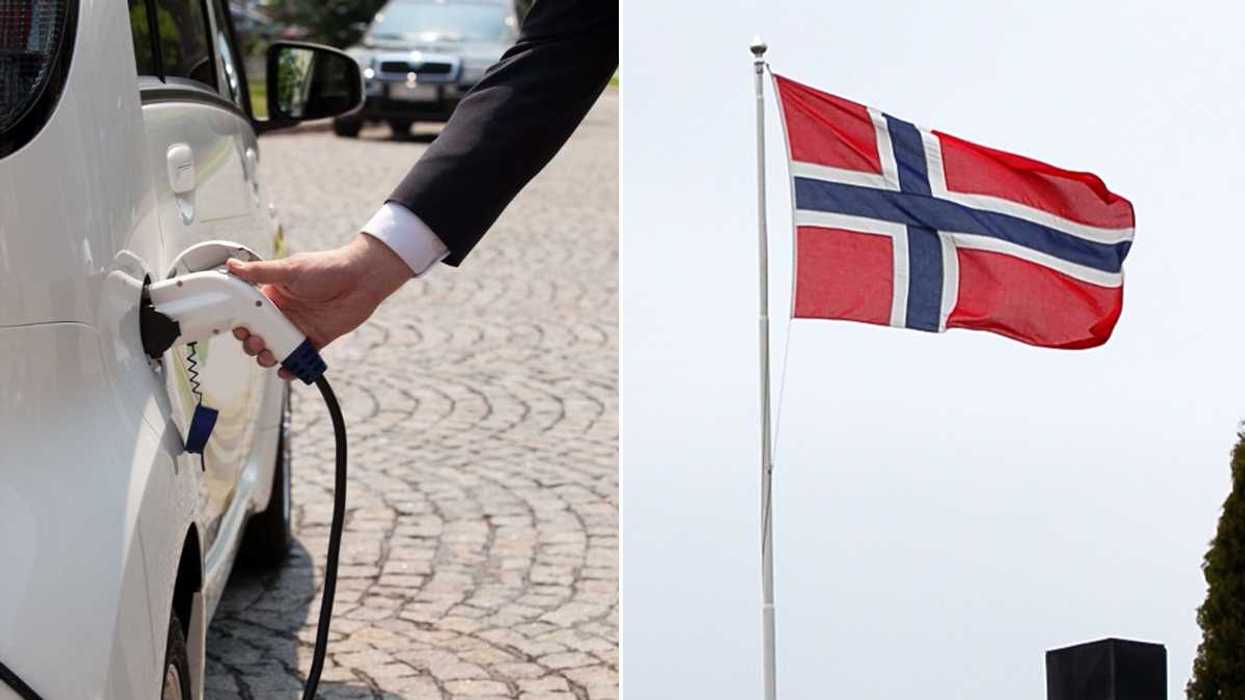We’ve relaunched a GOOD online series, “People Are Awesome,” where we feature good people doing great things—and seek their advice, inspiration, and ideas. This week’s Awesome Person: Sam Polk.
If you’ve heard of Sam Polk, it’s likely because of his recent viral op-ed in the New York Times, tearing into the bro culture of Wall Street. But this former hedge fund trader bears many layers; his main focus may surprise you. For several years now, Polk has focused his energy on helping people in food deserts eat better.
When he walked away from his finance gig back in 2010, Polk was not really sure what the next step was. “I came to realize I was standing in the wrong place in the world,” he says. “I didn’t know what I wanted to do, but it was not that.”
He dabbled in a bit of this and that, before seeing the seminal documentary on hunger in America, “A Place at the Table.” This was the inspiration for Groceryships, a nonprofit he launched in 2013. It’s a curious model, wherein groups of 10 inner-city parents (mothers mostly) receive regular batches of fresh produce, then have weekly meetups to talk about cooking tips, nutrition, and general commiseration about the challenges of eating well.
Groceryships expanded slow and steady, and this year will facilitate meetups for 20 to 30 different groups of parents. But to give new options for healthy urban eating, Polk is launching Everytable in South Los Angeles on Saturday, a chain of affordable “grab-and-go” shops.
Founded in conjunction with David Foster, another refugee from the world of high finance, Everytable will offer healthy, freshly prepared meals for as little as four dollars. Starting in a neighborhood with a median income of $13,000, where healthy food options are pretty slim, this for-profit business will be looking to scale up quickly around Los Angeles and the nation.
As Everytable’s launch nears, we caught up with the man behind the mission, to find out a little about what makes him tick.
Who is your hero?
I just read this great book by Tavis Smiley, the radio host and social justice advocate. It’s about the last year before the death of Martin Luther King, Jr. Basically you have this guy carrying the full weight of what was then a struggling civil rights movement. And despite the advice of everyone he knew, he came out against the Vietnam War before that was a popular thing to do. The press, the president, people in his own movement turned against him. His supporters were angry! Think about the power a single person has inside of them, if they harness and trust their instincts.
What’s the best advice you’ve received?
A lot of my backstory has to do with a Native American spiritual counselor I met with during my first summer on Wall Street. His advice is basically that all wisdom comes from the heart. If faced with a decision, will I think about it, or will I feel it with my heart? It sounds cliched, but I try to do always do that, to do what feels right.
How about the worst advice?
An old boss of mine, when I was thinking of quitting Wall Street, he said it was a good idea, but that I needed to have the have next thing lined up already. Honestly that would have been a great recipe to keep me paralyzed. So many people remain in jobs they’re not fulfilled in, staying stagnant based on that way of thinking.
What’s the last thing that made you laugh out loud?
I was sitting with a group of friendly misfits, and there was this woman talking about a coworking space, maybe WeWork? She said she didn’t like it because there were only people there who buy things, or sell things, or process things. I realized she had slipped into that Lloyd Dobler line from Say Anything! I cracked up when I realized what she was doing.
If you could be anywhere else right now, where would it be?
In Sun Valley, Idaho, with my wife and (2 ½-year-old) daughter. I get there as often as I can, but that’s only about once a year at this point. I mean, I’ve got this new store opening Saturday, I’ve got another kid coming in a month; life doesn’t make it easy.
















 Leonard Cohen performs in Australia in 2009.Stefan Karpiniec/
Leonard Cohen performs in Australia in 2009.Stefan Karpiniec/  Enjoying a sunset.Photo credit
Enjoying a sunset.Photo credit 



 Amoxicillin is a commonly prescribed broad-spectrum antibiotic.
Amoxicillin is a commonly prescribed broad-spectrum antibiotic.  Chart: The Conversation, CC-BY-ND
Chart: The Conversation, CC-BY-ND
 An envelope filled with cashCanva
An envelope filled with cashCanva Gif of someone saying "Oh, you
Gif of someone saying "Oh, you
 Two penguins play by the waterCanva
Two penguins play by the waterCanva
 A parking lot for charging electric vehicles.Photo credit
A parking lot for charging electric vehicles.Photo credit  Oil production.Photo credit
Oil production.Photo credit  Sun shines over the Earth.Photo credit
Sun shines over the Earth.Photo credit